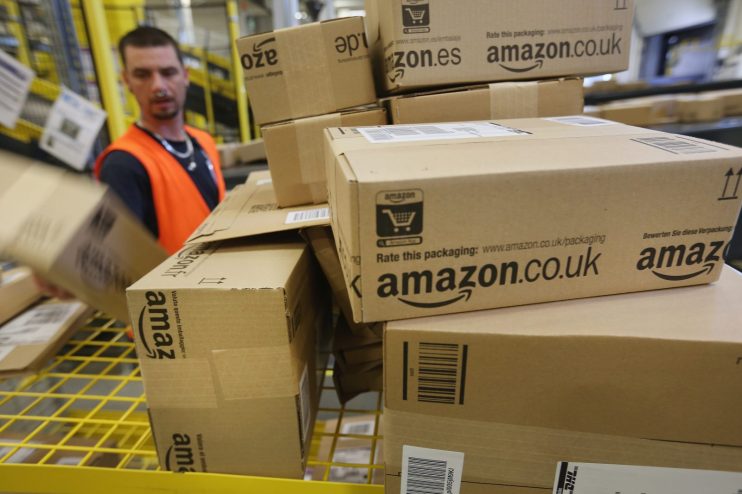New Amazon chief needs to think about his company’s role in society

Amazon’s recent financial report saw it hit another huge milestone, delivering its largest quarter by revenue of all time at $125.56 billion – reaching the $100 billion mark for the first time.
This success has much to do with founder Jeff Bezos’s relentless focus on the customer and their unchanging needs: value, choice and convenience. Through its use of technology the company has created a new set of consumer expectations – desktop to mobile, text to voice, same day to instant, one-click to anticipatory – which have left competitors struggling to keep up.
The challenge for incoming boss Andy Jassy is that today’s consumer has a whole new set of expectations outside of value, choice and convenience – expectations that his predecessor often overlooked.
Read more: Jeff Bezos to step down as Amazon chief executive as quarterly sales hit $125bn
Jassy does have some powerful tailwinds as he takes over at the helm. The shift in behaviour caused by the pandemic means people will be spending more time at home than ever before, even when lockdown restrictions across the globe unwind. This means the hunger for shopping online, streaming services for entertainment and next day delivery will all remain. It will also greatly benefit Amazon’s growing cloud computing and advertising businesses, as people keep working remotely and plugged into the platform.
But there are headwinds to navigate too. Amazon has shifted in perception from challenger and consumer champion to the establishment. You can feel this on a local level through the constant stream of vans charging down our roads, to the endless piles of smiley faced boxes peering through recycling bags – it is omnipresent.
As we spend more time within our communities we can see the real Amazon effect on local businesses struggling to stay afloat. Do people really want a future where customers want high streets fitted and turned into mini warehouses and micro delivery hubs? Now Amazon needs to focus on integrating into communities, to complement rather than dominate. It can take inspiration from the hyperlocal grocery delivery service, Subship, which is working in partnership with community retailers to encourage people to shop local, whilst still benefiting from the ease of ecommerce.
Sustainability is also now much higher on the list of customer priorities. This presents a serious challenge for the brand that relies on shocking volumes of cardboard to function.
The pandemic has also made us hyper aware of what we bring into our houses, sparking a trend for antiviral packaging. One route for the business could be to look to “clean” packaging as a long term strategy, or even to just provide additional use cases for its packaging that currently clog up our recycling bins and our streets.
Read more: Amazon’s UK sales surge to £20bn thanks to lockdown boom
Recent events have also made many re-evaluate job security. If your kids end up working from home telling computers what to do, good for them. But what if your kids end up in a warehouse being told what to do by computers? As it enters its next phase of evolution, Amazon will need to think about the role it plays in creating opportunities for the communities it serves, rather than solely focusing on the ways that technology can make our lives easier.
Shopify is a great case study in a brand understanding its role in the lives of the customer, with its mission to “make commerce better for everyone”. It has the belief that shopping isn’t best when it’s easy, but meaningful. This puts it in sharp contrast with Bezos’ view of the world. In taking this approach, Shopify engenders a personality of allyship and the friction in the shopping experience becomes part of its brand experience, in a fight against commoditisation.
As Jassy takes the helm one thing is clear, he needs to lead with a creative and innovative spirit that sees the brand fit harmoniously in the lives of today’s customer, not yesterday’s.